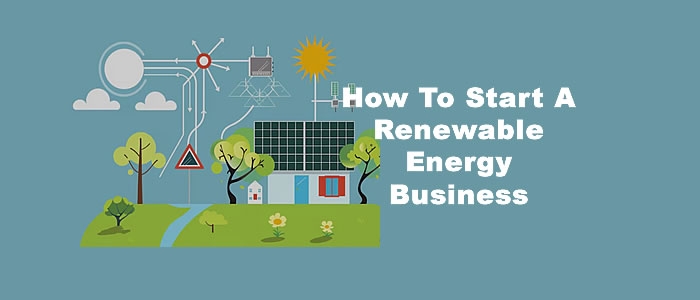
Nigeria’s growing population and industrial expansion have increased the nation’s energy demand far beyond what the national grid can supply. Millions of households and businesses experience frequent blackouts, pushing citizens toward alternative energy sources.
This energy gap presents a golden opportunity for entrepreneurs to venture into the renewable energy sector, which includes solar, wind, hydro, and biomass solutions. With the government’s push toward sustainable energy and the private sector’s enthusiasm, renewable energy in Nigeria has become not just an environmental necessity but a profitable business frontier.
2. Understanding the Renewable Energy Market in Nigeria
Nigeria is blessed with abundant renewable resources:
- Solar Energy: Over 2,000 hours of sunshine annually, making it ideal for solar power generation.
- Wind Energy: Suitable wind speeds in coastal areas and the northern regions.
- Hydro Power: Numerous rivers and dams capable of producing small and medium hydroelectric projects.
- Biomass: Agricultural and organic waste can generate biogas and power rural communities.
- Market Drivers
- Unstable Power Supply — Frequent blackouts make alternative energy highly attractive.
- Falling Solar Prices — Declining costs of panels, inverters, and batteries improve profit margins.
- Government Incentives — Policies such as the Renewable Energy Master Plan and tax incentives encourage private participation.
- Green Financing — Development banks and NGOs now fund renewable energy startups and rural electrification projects.
Target Market Opportunities
- Households and residential estates
- Small and medium businesses (SMEs)
- Schools and hospitals
- Manufacturing industries
- Rural electrification projects
3. Step-by-Step Guide to Starting a Renewable Energy Business
Step 1: Conduct Market Research
Start by understanding the local energy demand in your target area. Research existing competitors, average power costs, and customer preferences. For instance, some communities may prefer solar home systems, while others may demand mini-grid solutions for businesses.
Step 2: Choose Your Niche
There are several profitable niches within the renewable energy value chain:
• Solar Panel Installation and Sales
• Solar Product Distribution (Panels, Batteries, Inverters)
• Renewable Energy Consultancy and Auditing
• Wind or Hydro Project Development
• Biogas Production from Agricultural Waste
Select one or two areas where you have the resources, technical capacity, and passion to grow.
Step 3: Develop a Business Plan
Your business plan should include:
• Market overview and target customers
• Startup capital requirements
• Pricing and revenue models
• Marketing and distribution strategy
• Financial projections
• Possible funding sources
A clear plan helps attract investors, banks, or development partners.
Step 4: Register Your Business
Register your company with the Corporate Affairs Commission (CAC). If you intend to import solar components, obtain necessary permits from the Nigerian Electricity Regulatory Commission (NERC) and the Standards Organisation of Nigeria (SON) to ensure compliance with local regulations.
Step 5: Secure Funding
Starting a renewable energy business can be capital-intensive. You can explore:
- Personal savings or family support
- Bank loans or microfinance institutions
- Government and NGO grants (e.g., Rural Electrification Agency programs)
- Green investment funds or foreign partnerships
Step 6: Source Reliable Equipment and Partners
Partner with trusted international or local suppliers who offer quality solar panels, batteries, and inverters. Poor-quality materials may lower performance and damage your reputation. Consider brands certified by SON or IEC (International Electrotechnical Commission).
Step 7: Build a Skilled Team
Hire or train technicians, engineers, and sales professionals. Renewable energy businesses rely heavily on technical expertise, so regular training is vital. You can collaborate with institutions like Energy Commission of Nigeria (ECN) or renewable energy training centres.
Step 8: Market Your Services
Use both online and offline strategies:
- Social media advertising (Facebook, Instagram, LinkedIn)
- Partnerships with real estate developers
- Participation in trade fairs or energy exhibitions
- Demonstration projects in schools or communities
- Offer free consultations or energy audits to attract clients.
Step 9: Provide After-Sales Support
Customer retention depends on reliable maintenance and support. Offer warranties, regular servicing, and 24/7 technical assistance. A satisfied client can refer many others.
4. Legal and Regulatory Considerations
To operate legitimately and avoid penalties, comply with the following:
- NERC Licensing – Required for power generation above a certain capacity.
- SON Approval – Ensure imported components meet national standards.
- Environmental Impact Assessment (EIA) – Needed for large-scale installations.
- Local Government Permits – Some areas require local approvals before installation.
- Staying compliant builds credibility and trust among clients and investors.
- 5. Challenges Facing Renewable Energy Businesses in Nigeria
While the opportunities are vast, entrepreneurs should anticipate these hurdles:
- High Startup Costs — Quality equipment and batteries are expensive.
- Limited Access to Financing — Traditional banks may consider renewable energy startups risky.
- Lack of Skilled Labor — Few trained technicians can handle advanced systems.
- Inconsistent Government Policy — Changes in import duty or energy policies can affect profitability.
- Low Public Awareness — Many potential customers still rely on generators and are unaware of solar benefits.
- Successful entrepreneurs overcome these by forming partnerships, educating customers, and managing costs smartly.
6. Profitability and Future Outlook
Renewable energy is one of the fastest-growing industries in Nigeria. With solar installations ranging from ?200,000 for small homes to ?5 million for business setups, profit margins can reach 20–35%.
The future is even brighter:
- Nigeria aims to achieve 30% renewable energy generation by 2030.
- Demand for clean power in rural and urban centers continues to rise.
- Local manufacturing of solar panels and inverters will reduce import dependency, increasing profits.
Entrepreneurs who enter the sector now will benefit from being early leaders in a rapidly expanding market.
Conclusion: Starting a renewable energy business in Nigeria is both impactful and profitable. It addresses a real societal problem unreliable electricity while promoting sustainable development and job creation.
To succeed, you must:
- Understand your market
- Offer quality solutions
- Build strong partnerships
- Provide excellent customer service
The transition to clean energy is inevitable. Entrepreneurs who seize this moment will not only build successful businesses but also power Nigeria toward a brighter, greener future.







 Workplace Soft Skills That Make You Stand Out in the Business World
Workplace Soft Skills That Make You Stand Out in the Business World  Essential Certifications And Education For Advancing In Business
Essential Certifications And Education For Advancing In Business